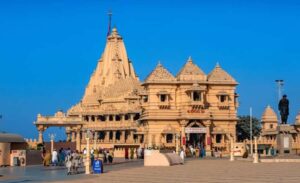Mahatma Gandhi Jayanti
Gandhi Jayanti is celebrated in India on October 2nd every year to commemorate the birth anniversary of Mahatma Gandhi, the Father of the Nation. It is a significant national holiday in India and is observed with great reverence and enthusiasm. On this day, people pay tribute to the life and teachings of Mahatma Gandhi, who played a pivotal role in India’s struggle for independence through non-violent civil disobedience.
This essay explores the history, importance, and significance of Gandhi Jayanti, shedding light on the life and legacy of Mahatma Gandhi and the enduring impact of his principles on the world.

History of Gandhi Jayanti
Gandhi Jayanti has its roots in the widespread admiration and respect for Mahatma Gandhi’s leadership in India’s struggle for independence. It was first celebrated in 1947, immediately after India gained independence from British colonial rule. The decision to observe October 2nd as Gandhi Jayanti was made by the Indian government to honor the memory of Mahatma Gandhi, who had been assassinated on January 30, 1948, in New Delhi.
The significance of October 2nd as the date for Gandhi Jayanti is deeply connected to the life of Mahatma Gandhi himself. He was born on October 2, 1869, in Porbandar, a coastal town in Gujarat, India. Therefore, it was chosen as the most appropriate date to commemorate his birth and his life’s work in the pursuit of justice, truth, and non-violence.
Importance of Gandhi Jayanti
Gandhi Jayanti holds immense importance on several levels:
1. Celebration of a National Icon: Gandhi Jayanti is a day to celebrate the life and contributions of Mahatma Gandhi, a towering figure in India’s history and a symbol of peace, non-violence, and truth. He is considered the Father of the Nation, and this day allows the nation to pay homage to his memory.
2. Promotion of Gandhian Values: Gandhi’s teachings and principles, such as non-violence (Ahimsa), truth (Satya), self-reliance, and simplicity, continue to be relevant in today’s world. Gandhi Jayanti serves as a reminder of these values and their importance in addressing contemporary challenges.
3. Inspiration for Social and Political Movements: Gandhi’s philosophy of non-violence has inspired numerous social and political movements around the world, Including the leadership of Martin Luther King Jr. during the American Civil Rights Movement and Nelson Mandela’s role in the anti-apartheid movement in South Africa. Gandhi Jayanti encourages people to draw inspiration from his methods of peaceful resistance and civil disobedience.
4. Emphasis on Swachh Bharat (Clean India) Campaign: In recent years, Gandhi Jayanti has been associated with the Swachh Bharat Abhiyan (Clean India Campaign), a nationwide initiative to promote cleanliness and sanitation. This initiative is in line with Gandhi’s emphasis on cleanliness as a form of self-discipline and a means to a healthier society.
5. Educational Initiatives: Schools and educational institutions across India organize special programs and events on Gandhi Jayanti to educate students about Mahatma Gandhi’s life, principles, and his role in India’s struggle for independence. This helps instill a sense of patriotism and social responsibility in the younger generation.

Significance of Gandhi Jayanti
Gandhi Jayanti holds deep significance not only within India but also globally. Here are some key aspects of its significance:
1. Advocacy for Non-Violence: Mahatma Gandhi is widely recognized as one of the most prominent advocates of non-violence in the history of the world. His philosophy of non-violent resistance, or Satyagraha, influenced not only India’s struggle for freedom but also subsequent movements for civil rights, social justice, and peace worldwide.
2. Influence on Civil Rights Movements: The principles and methods espoused by Gandhi had a profound impact on civil rights movements in various countries. Leaders like Martin Luther King Jr. in the United States and Nelson Mandela in South Africa drew inspiration from Gandhi’s strategies of peaceful protest and civil disobedience to achieve social and political change.
3. Global Relevance: Gandhi’s message of peace and non-violence continues to resonate globally. In a world marked by conflict and violence, his legacy serves as a reminder of the power of peaceful resistance and dialogue in resolving disputes and fostering harmony among nations.
4. Struggle Against Colonialism: Gandhi Jayanti is a reminder of India’s struggle against British colonialism. It symbolizes the determination of a people to achieve freedom and self-determination through peaceful means, even in the face of adversity.
5. Promotion of Tolerance and Harmony: Gandhi’s teachings emphasized religious and communal harmony. His vision for an inclusive and tolerant society remains relevant in a world where religious and ethnic tensions often lead to conflict. Gandhi Jayanti serves as an occasion to promote unity and understanding among different communities.
6. Legacy of Simplicity and Selflessness: Mahatma Gandhi lived a life of simplicity, austerity, and selflessness. His dedication to the welfare of the masses, especially the poor and marginalized, inspires people to work for the betterment of society and to prioritize service over personal gain.
7. Celebration of India’s Cultural Heritage: Gandhi Jayanti is not just a political commemoration but also a celebration of India’s rich cultural heritage and its enduring values of truth, non-violence, and compassion. It reinforces the idea that India’s cultural legacy is deeply intertwined with its modern identity.
Places in India Dedicated to Mahatma Gandhi

1- Sabarmati Ashram, Ahmedabad, Gujarat
Sabarmati Ashram, also known as the Sabarmati Gandhi Ashram, is one of the most iconic places associated with Mahatma Gandhi. It served as his residence and the center of his activities during the freedom struggle. Visitors can explore his living quarters, the museum, and the serene surroundings along the Sabarmati River.
2- Raj Ghat, New Delhi
Raj Ghat is the memorial of Mahatma Gandhi in the national capital, New Delhi. It is a simple black marble platform marking the spot where Gandhi was cremated after his assassination in 1948. The area is surrounded by beautifully landscaped gardens and is a place for quiet reflection.
3- Mani Bhavan, Mumbai, Maharashtra
Mani Bhavan, also known as Gandhi Museum, is a historic building where Mahatma Gandhi stayed during his visits to Mumbai. It now houses a museum dedicated to his life and work, showcasing his personal belongings, photographs, and letters.
4- Sevagram Ashram, Wardha, Maharashtra
Sevagram Ashram was Mahatma Gandhi’s ashram after he moved from Sabarmati. It was an important center for his activities, and today, it serves as a museum and a memorial to his life and work. Visitors can see his living quarters and the simple lifestyle he advocated.
5- Gandhi Smriti, New Delhi
Formerly known as Birla House, Gandhi Smriti is the place where Mahatma Gandhi was assassinated on January 30, 1948. It has been preserved as a museum and a memorial to his life and teachings. The room where he lived and the spot of his assassination are the key attractions.
6- Kirti Mandir, Porbandar, Gujarat
Kirti Mandir is the birthplace of Mahatma Gandhi. It is a beautiful temple-like structure with a museum that showcases his life through photographs, paintings, and personal belongings.
7- Gandhi Teerth, Gandhi Research Foundation, Jalgaon, Maharashtra
Gandhi Teerth is a research institute and museum dedicated to Mahatma Gandhi. It houses a vast collection of books, documents, and artifacts related to his life and philosophy. The institute conducts research and educational programs on Gandhian thought.
8- Dandi Beach, Gujarat
Dandi Beach holds historical significance as the place where Mahatma Gandhi led the famous Dandi March (Salt Satyagraha) in 1930. A memorial plaque commemorates this event, and the beach is a popular tourist destination.
9- Gandhi Memorial Museum, Madurai, Tamil Nadu
This museum is dedicated to Mahatma Gandhi and showcases a wide range of artifacts and exhibits related to his life, including photographs, letters, and sculptures. It is housed in a peaceful complex with a Gandhi Memorial Pillar.
10- Gandhi Memorial, Kanyakumari, Tamil Nadu
Located at the southern tip of India, Kanyakumari is known for its stunning natural beauty and as the place where Mahatma Gandhi’s ashes were immersed in the sea after his death. The Gandhi Memorial is an architectural marvel and a place for reflection.
Gandhi Jayanti 2023 Quotes and Wishes
- “The best way to find yourself is to lose yourself in the service of others.” – Mahatma Gandhi
- “In a gentle way, you can shake the world.” – Mahatma Gandhi
- “Be the change you wish to see in the world.” – Mahatma Gandhi
- “Let’s celebrate the legacy of a great soul who taught us the power of nonviolence. Happy Gandhi Jayanti!”
- “On this Gandhi Jayanti, let’s remember the man who showed us the path of truth and nonviolence. Wishing you a peaceful day.”
- “May the spirit of truth and nonviolence be with us all on this Gandhi Jayanti. Happy birthday, Bapu!”
- “Gandhi Jayanti is a reminder that even one person’s actions can change the world. Let’s follow his footsteps and make a difference.”
- “As we celebrate Gandhi Jayanti, let’s strive to be better versions of ourselves and work towards a more peaceful and just world.”
- “Remembering the Mahatma on his birthday. May his principles guide us towards a harmonious society. Happy Gandhi Jayanti!”
- “On this Gandhi Jayanti, let’s pledge to spread love, peace, and tolerance just as he did throughout his life.”
Conclusion
Gandhi Jayanti is a day of remembrance and reflection, honoring the life and legacy of Mahatma Gandhi, a man who transformed the course of history through his unwavering commitment to truth and non-violence. His teachings continue to inspire individuals and movements worldwide, advocating for social justice, peace, and human rights. Gandhi Jayanti is not merely a celebration but a reminder of the enduring relevance of Gandhi’s principles in building a more just and peaceful world. It encourages people to embody the ideals of truth, non-violence, and selflessness in their own lives, contributing to a more compassionate and harmonious society.
- You May Also Like: Diwali – Festival of Lights








